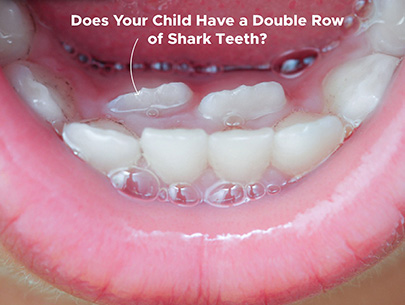When to Be Concerned When Baby Teeth Don’t Fall Out
Parents frequently worry if their child’s newborn teeth do not appear to be erupting as expected. A child may typically begin losing teeth between the ages of 4 and 8, with the majority beginning to do so at age 6. Read on to find out more about this condition and what to watch out for that may suggest concerns if your child is older than 8 and has not yet started losing their baby teeth.
What are childrens Shark Teeth?
When a child’s baby teeth do not fall out but instead their new permanent teeth erupt, the term “shark teeth” is used. A youngster may develop rows of teeth, similar to those of a shark, with the new teeth typically coming in closer to the tongue as a result.
It is better to let the baby tooth fall out spontaneously if this happens. This will go more smoothly if the baby tooth is already loose since your child’s tongue pressure will assist force the new tooth into place while gradually ejecting the baby tooth. Alternatively, if the baby tooth is really loose but still in place, you or your child can manually pull it out.
However, you might need to think about a tooth extraction from a paediatric dentist if a permanent tooth is erupting but the baby tooth is still in place. But you should only do this as a last option.

Symptoms to Visit a Dentist for childrens Shark Teeth.
Delay in tooth loss is typically not a problem. To be safe, though, think about taking your kid to a paediatric dentist if you encounter any of the following symptoms:
Baby tooth that is too tight: If, two months after you first spotted the shark tooth, your child’s baby tooth is still too tight, you may need to have it pulled.
Shark teeth in the molars are smaller, more prevalent, and typically do not cause orthodontic issues. Shark teeth in the front teeth are more common. Molar shark teeth might cause additional pain.
Crowding
The permanent teeth may be unable to naturally push out baby teeth if there isn’t enough space for them to erupt.
Congenitally absent teeth: Baby teeth that are not being replaced by permanent teeth might remain rooted in the mouth indefinitely.
Blocking the normal eruption of permanent teeth is the condition of having too many teeth. A dentist can identify the condition with the aid of an x-ray.
Oakstone Dental can assist if you are worried about the development of your child’s permanent teeth and baby teeth. Please don’t hesitate to CONTACT US with us right away or make an appointment to come by our office in Melbourne.







